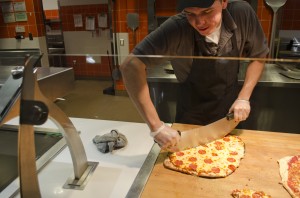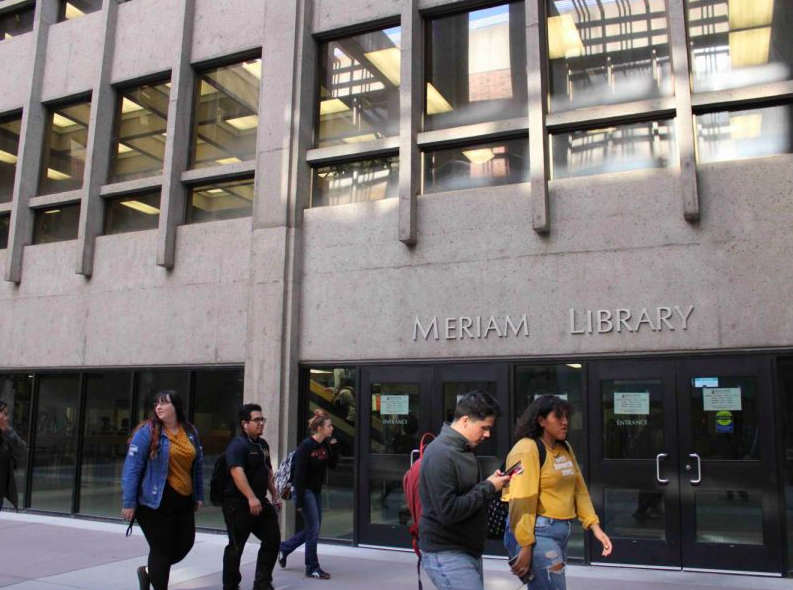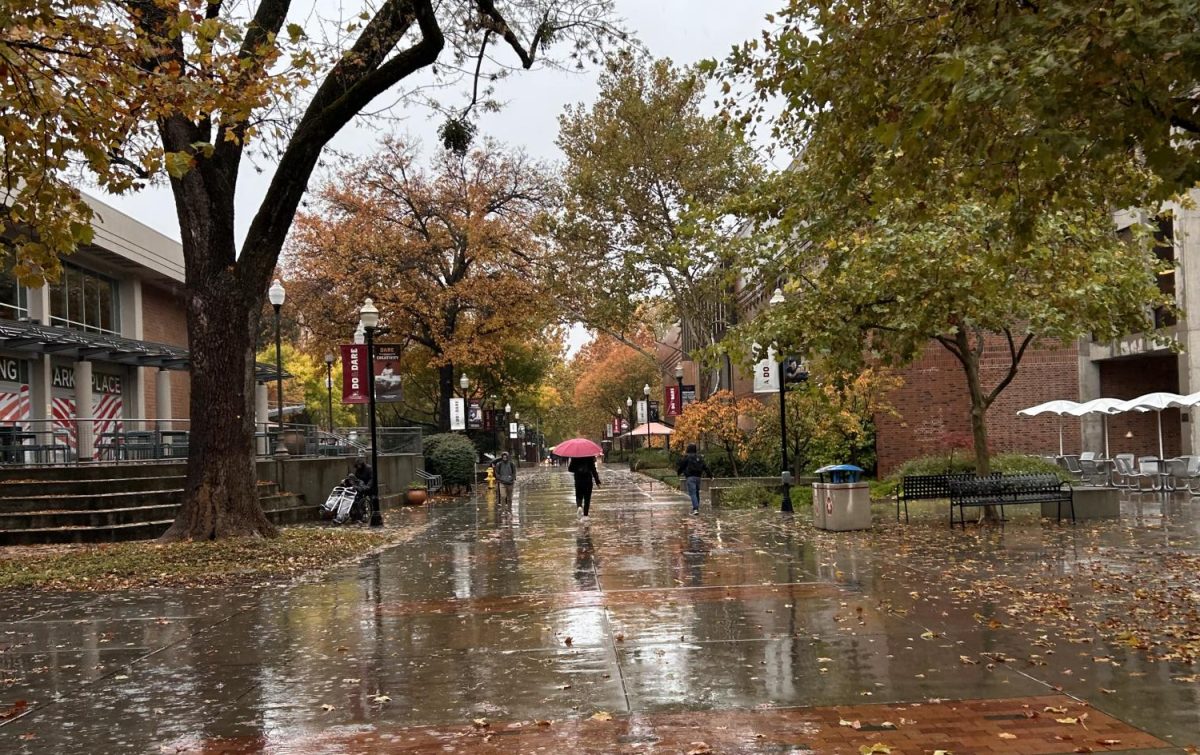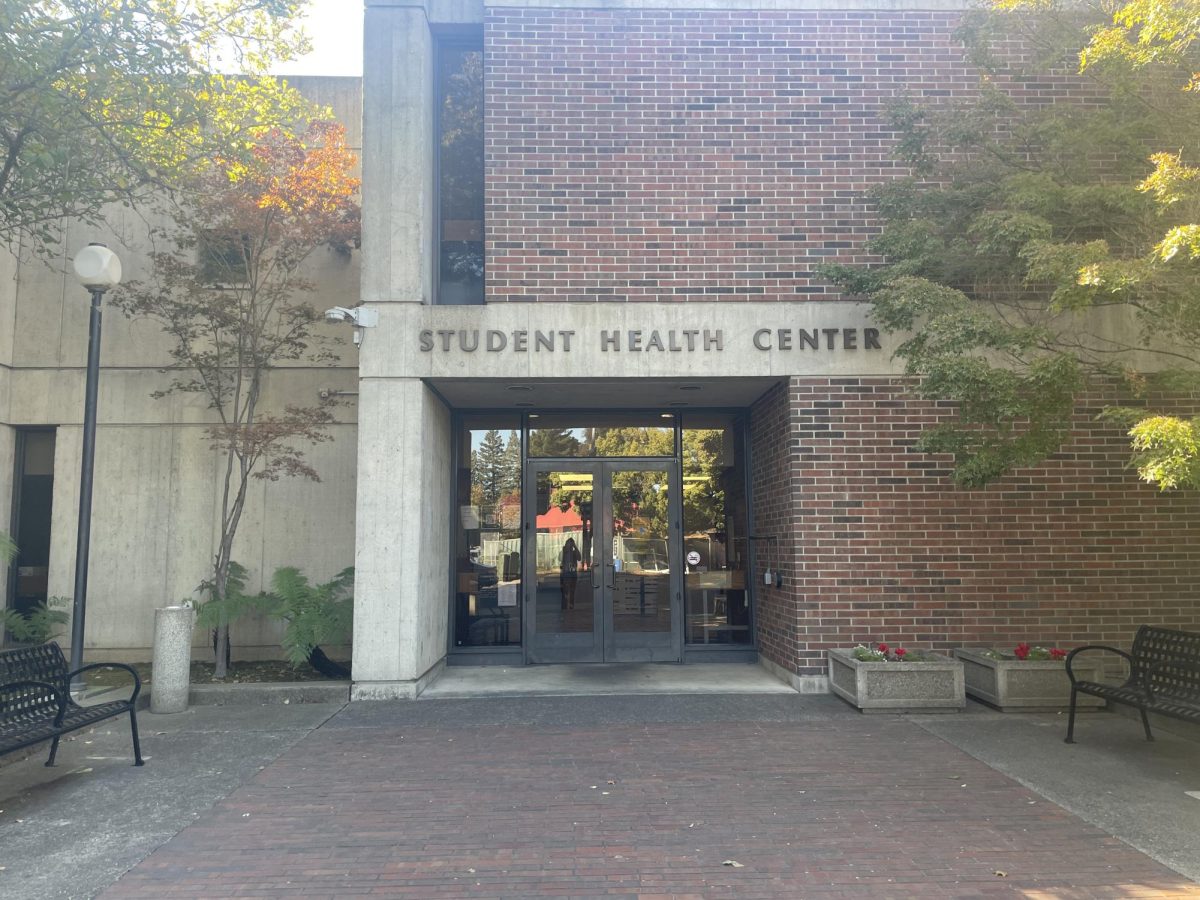
Vincent Fuentes, senior business major, prepares a pizza at Sutter Dining.
Associated Students are looking to get “real” with the food they serve on campus.
The Environmental Affairs Council, an A.S. body that promotes sustainability, is working to propose a policy that would shift at least 20 percent of A.S. Dining’s food budget toward food that is certified organic, fair trade and distributed by businesses within 250 miles of campus.
“It’s healthier, it’s better for our community, it’s better for our economy,” said Kaitlin Haley, who chairs the Environmental Affairs Council.
The policy would be a commitment to the “Real Food Challenge,” a nationwide campaign with the goal of shifting $1 billion of colleges and universities’ food budget toward “ecologically sound and humane,” or “real food,” according to the campaign’s website.
“Our food system is driving an epidemic of diabetes and diet-related diseases while also fueling climate change and the loss of our nation’s family farmers,” according to the website.
So far, 17 schools have contributed a total of $50 million in pledges to the campaign since it launched in 2008, according to the site.
The Environmental Affairs Council’s proposal has not yet been drafted, but it has the full support of George Rankin, director of A.S. Dining.
“Dining Services on campus has a long-standing commitment to sustainability,” Rankin said.
A.S. Dining handles all food purchasing on campus, Haley said.
Local distribution is an important aspect of the movement for Grace Kerfoot, the sustainable dining consultant for A.S. Sustainability.
Kerfoot is researching local food distributors that A.S. can use as alternatives to major companies.
“Chico is such a great close-knit community that I think it makes a lot of sense to source from the farmers that we live right next to,” Kerfoot said.
Recently, Kerfoot and Haley compiled A.S. Dining invoices to calculate the amount of locally-sourced food the organization buys.
On average, an estimated 7 percent of all food served on campus qualifies as “real food,” Haley said.
The number may be as low as 1 percent for Sutter Dining Hall, Haley said.
“We can’t say we’re sustainable, when behind closed doors, we’re not living up to the green campus that we claim to be,” she said.
The calculations were approved by the Campus Sustainability Committee, a group of 17 Chico State faculty and administrators.
The results were published using the Sustainability Tracking and Rating System, a self-reported environmental assessment for colleges provided by the Association for Advancement of Sustainability in Higher Education.
A.S.’s primary vendor, US Foods, isn’t part of those calculations.
Kerfoot and Haley are still looking at A.S. Dining invoices to figure out how “real” products purchased from US Foods are.
“It’s a big fat grey area that we don’t know about,” Haley said.
Some foods, like milk and bread, may travel hundreds of miles before reaching Chico State, Haley said.
“We have some of the best bread in this area, but we buy our bread from LA,” Haley said. “ Our bread has to travel 500 miles, if not more, because some of these companies will ship the food somewhere else to get it packaged, ship it back, and then it comes to your plate.”
Food distribution has become dependent on fossil fuels because of the traveling distance, she said.
“If something happens and we lose a good portion of our gas, food would not be able to travel the distance that it has been,” Haley said. “As a university, we think that food security is something that we really need to pay attention to, especially a campus that claims to be so prominent in sustainability and agriculture.”
A move toward more “real food” may not cost more than conventional food in the long run, Rankin said.
“There is always an initial cost to implementing comprehensive sustainability,” Rankin said. “In the long run, smart use and allocation of resources will actually save cost.”
Mozes Zarate can be reached at [email protected] or @mzarate139 on Twitter.









